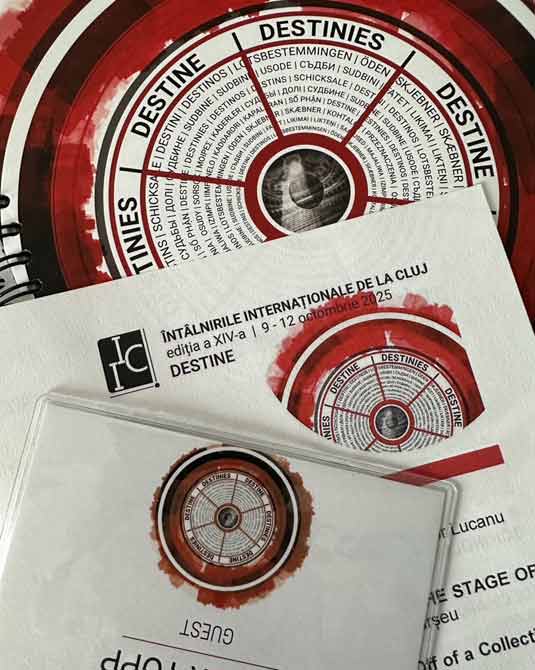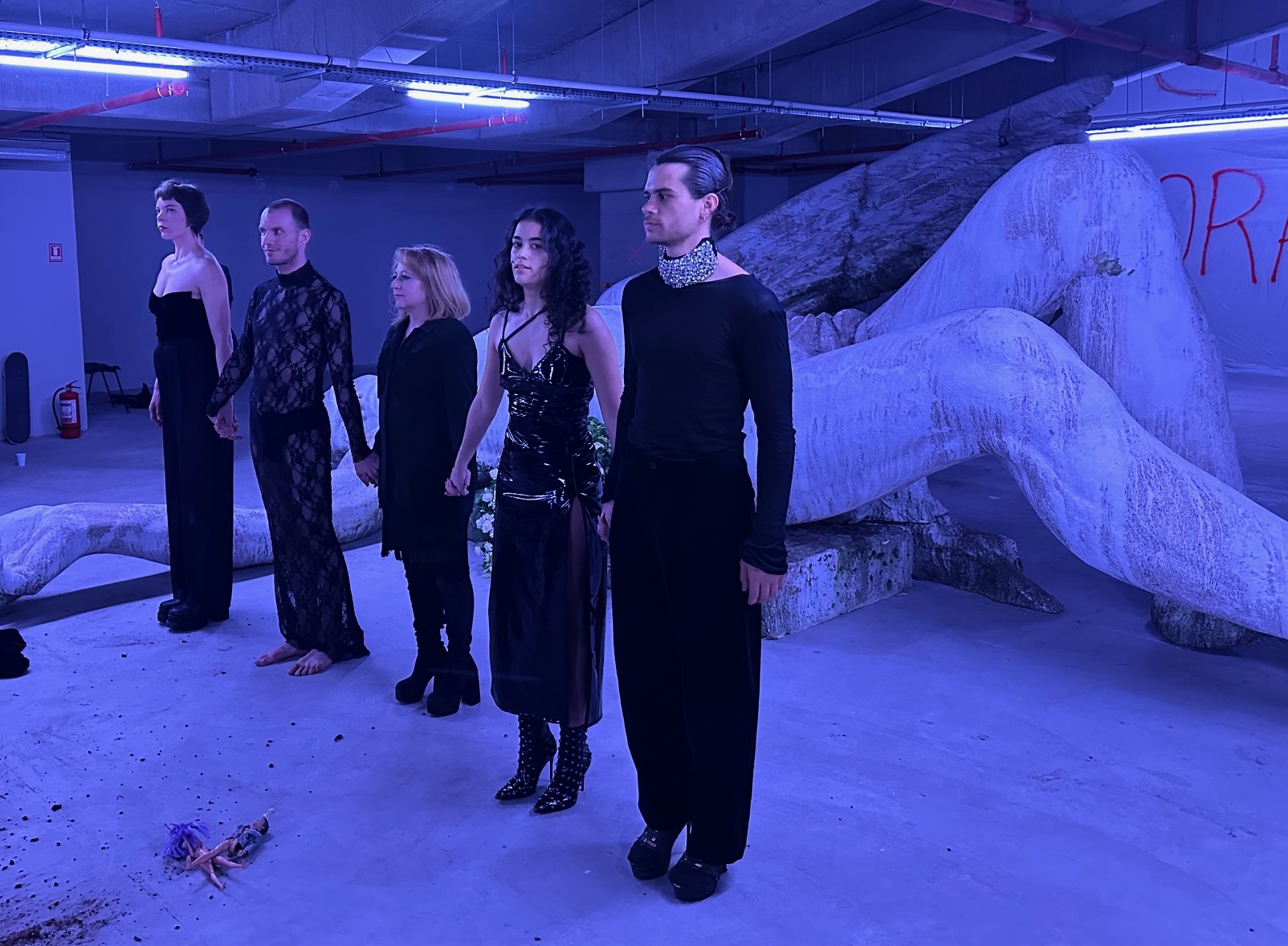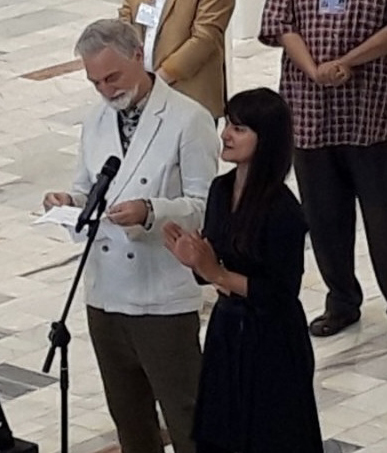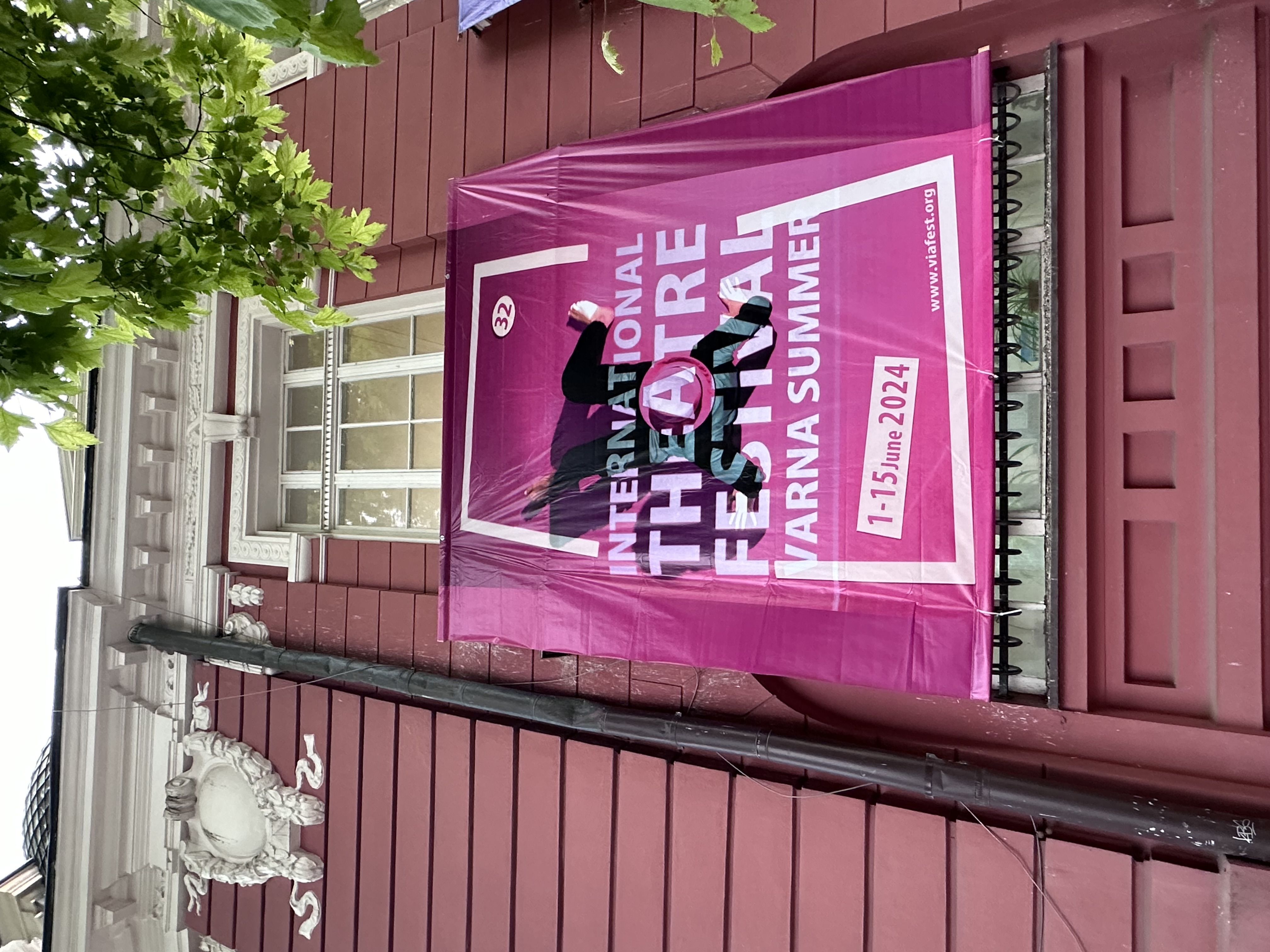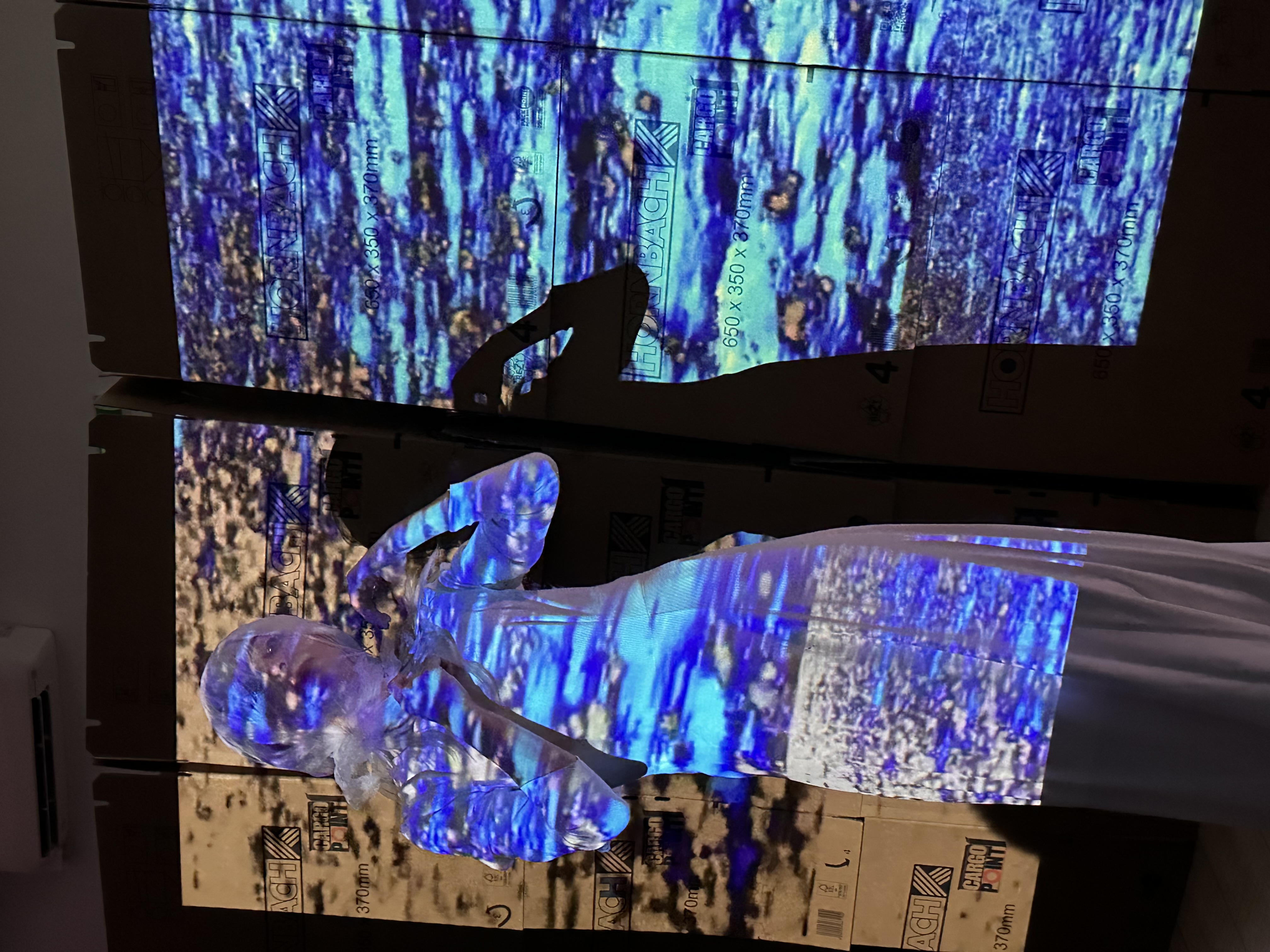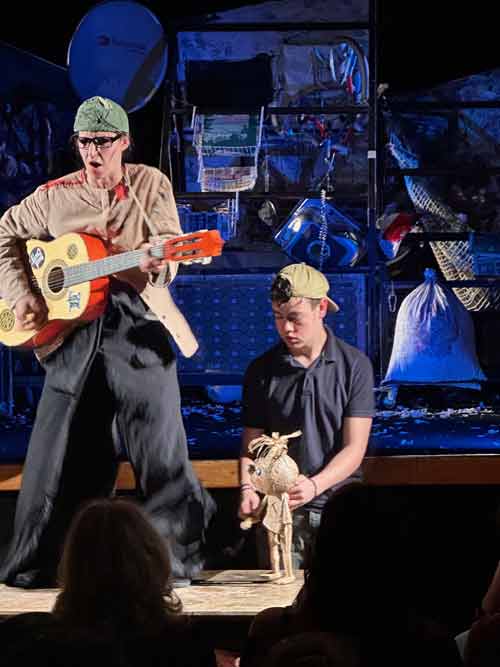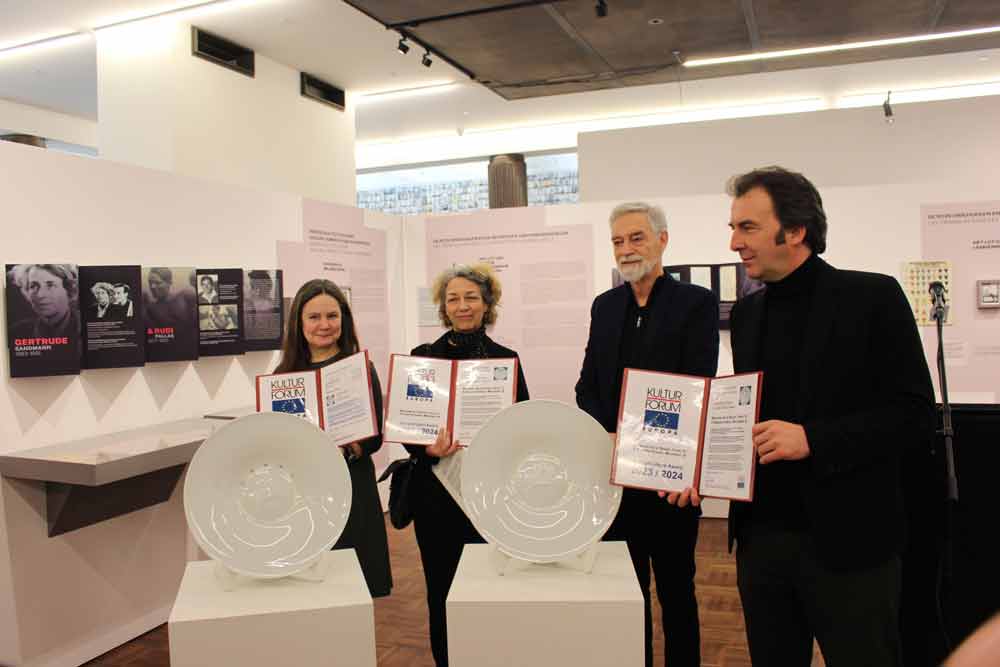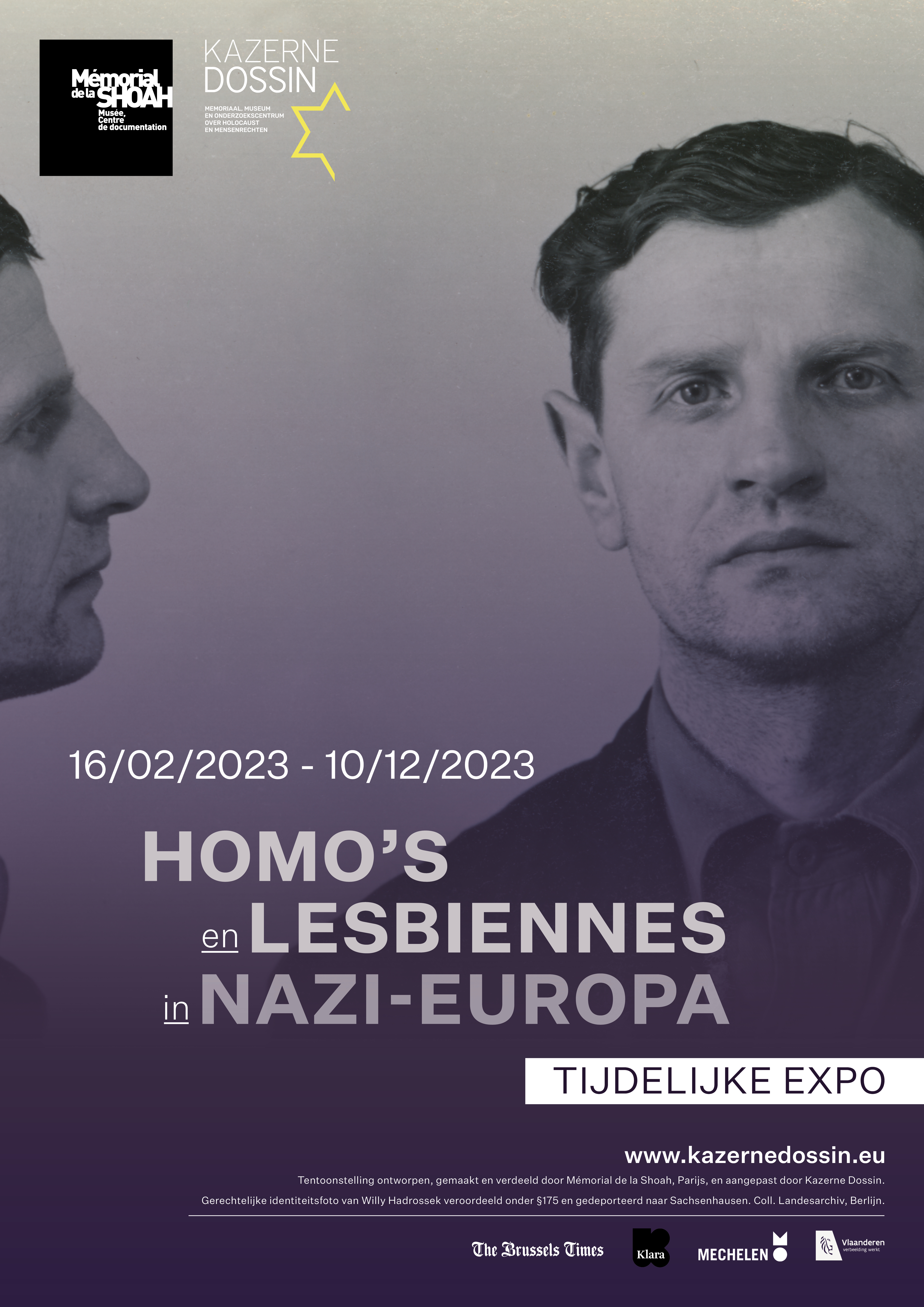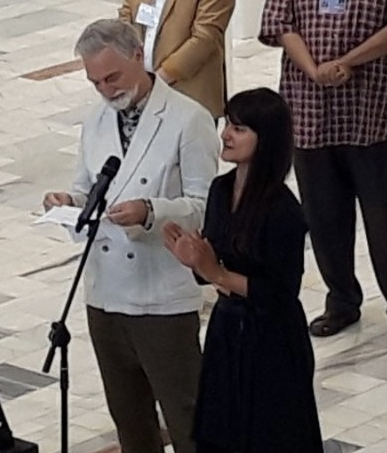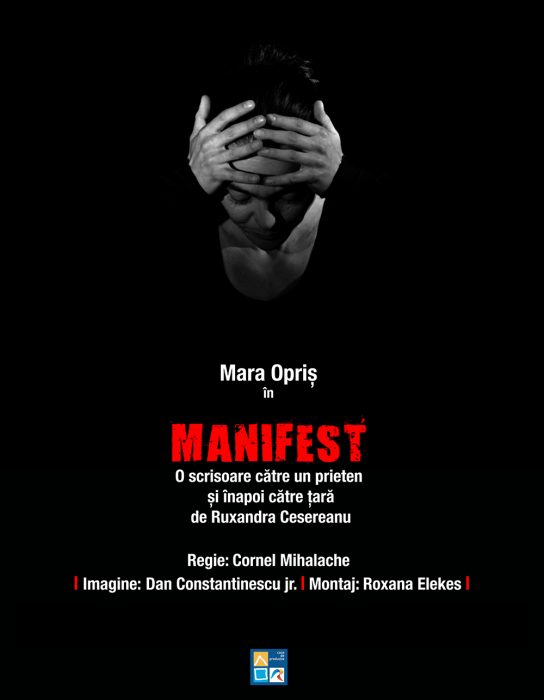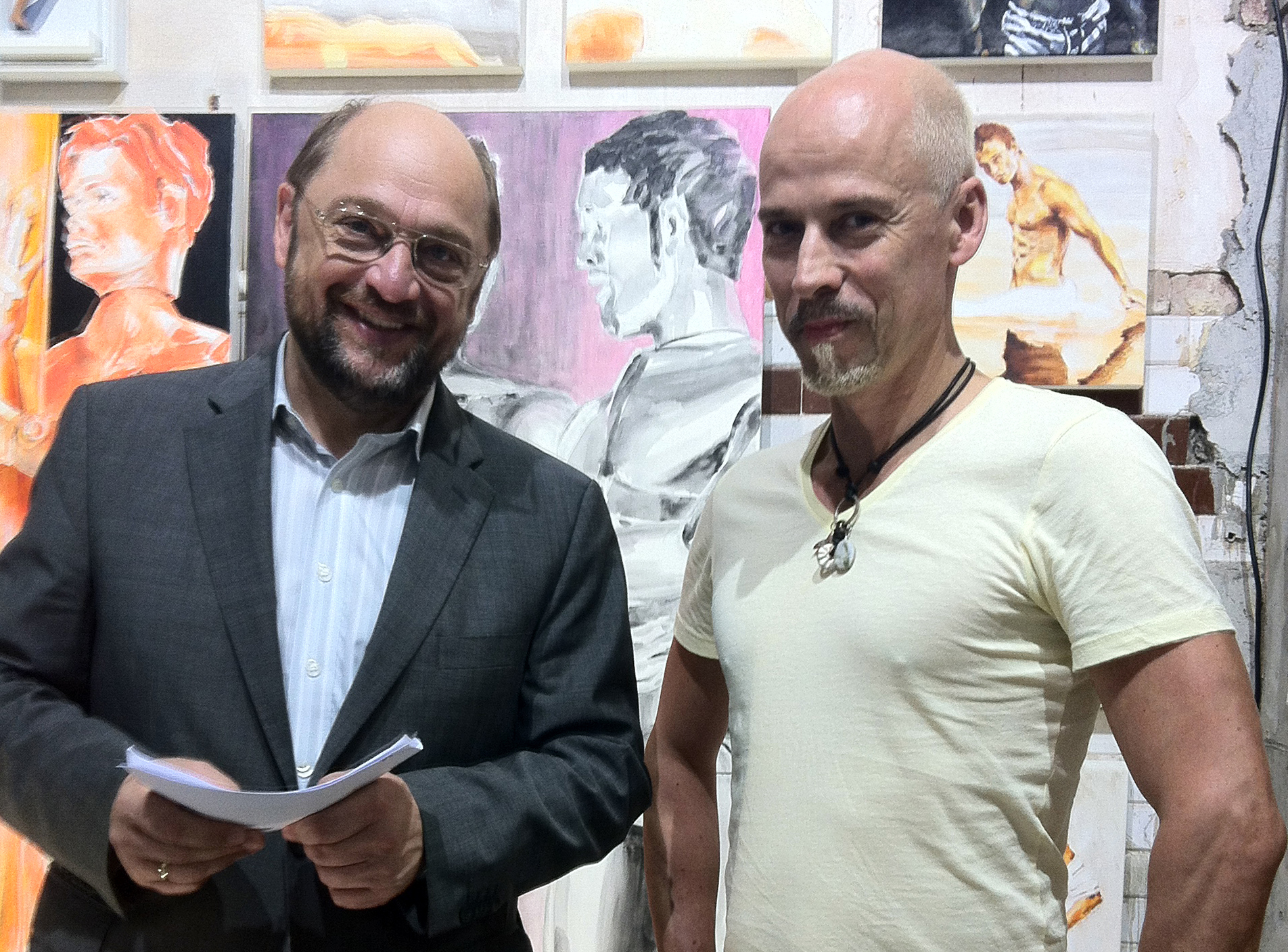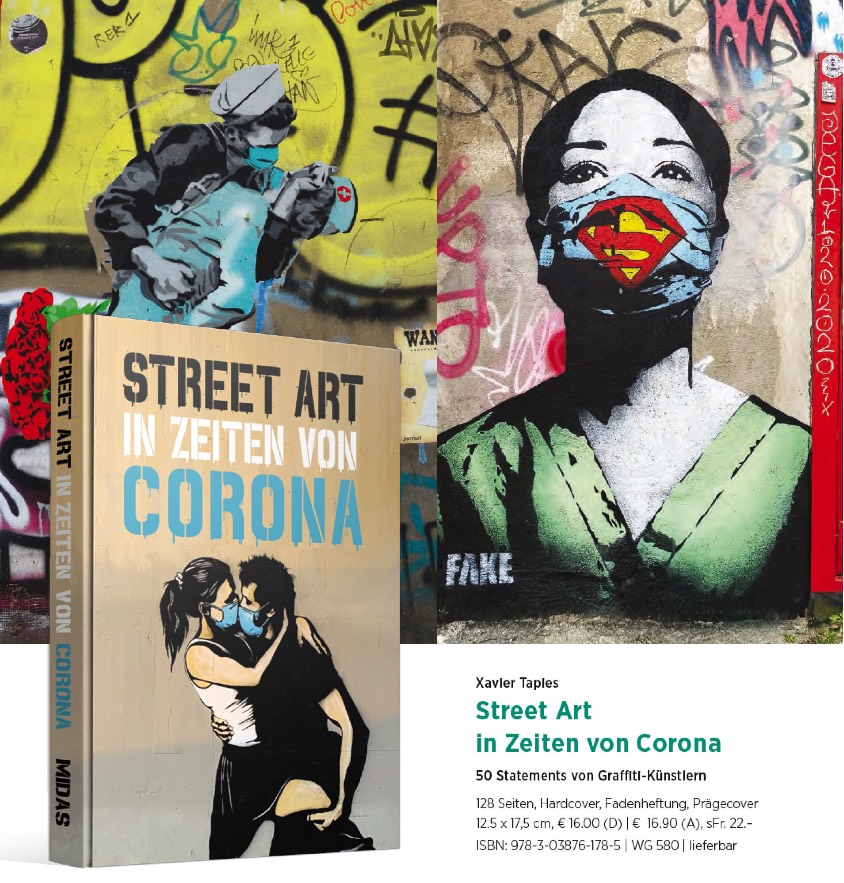 National Theatre "Lucian Blaga" with a view on Romanian culture from the multicultural city of Cluj-Napoca at the 11th International Meeting
National Theatre "Lucian Blaga" with a view on Romanian culture from the multicultural city of Cluj-Napoca at the 11th International Meeting
Between 28 September and 2 October 2022, the National Theatre "Lucian Blaga" had invited national and international persons and personalities from the world of theatre to the annual meeting to present the view of Romanian culture from the multicultural city Cluj-Napoca.
The all-dominant topic of the cruel and contemptuous Russian invasion of Ukraine and the human tragedies associated with it naturally did not stop at European and international theatre festivals, including the 11th International Meetings in Romania.
A theatrical showcase, readings and conferences, as well as book launches were part of the rich programme of these five days.
"Where are peace and balance we need? Tolerance, the civilised spirit of negotiation and respect for differences between people, nations, peoples seem to have been lost," the organisers rightly said.
The first live encounter started with WAR THEATRE based on texts by Natalia Vorojbit, Tetiana Kițenko and Natalia Blok, translated by Raluca Rădulescu.
 Ionuț Caras once again proved himself not only as an excellent actor, but once again as a director with skill and good empathy in the performance reading based on the texts "Sacha, Take out the Garbage" by Natalia Vorojbit, "Let's Call Them by Name" by Tetiana Kitenko and "Our Children" by Natalia Blok:
Ionuț Caras once again proved himself not only as an excellent actor, but once again as a director with skill and good empathy in the performance reading based on the texts "Sacha, Take out the Garbage" by Natalia Vorojbit, "Let's Call Them by Name" by Tetiana Kitenko and "Our Children" by Natalia Blok:
"What do we know about the war? Nothing at all. What do we know about the experience of losing a loved one, of seeing them disappear without a trace? What do we know about bombings, attacks, bullets, rapes or murdered children? Nothing at all. ... But the dead, their victims, the chaos, the drama - all this is real, it is actually happening. In our immediate vicinity."
Each of the three dramatic texts spoke in its own way of the tragedy unfolding in Ukraine. They were meant to make us aware of what is happening, to make us more empathetic, to keep us from forgetting (just as we have forgotten so many other things) and, finally, to make us human.
Precisely because of Caras' empathy, the actors Adriana Băilescu, Diana Ioana Licu and Matei Rotaru succeeded in balancing the semi-scenic performance so as not to let emotional elements slip into the pathetic.
 MAIDAN INFERNO by Ukrainian playwright Neda Nezhdana, a semi-staged reading directed by Tudor Lucano
MAIDAN INFERNO by Ukrainian playwright Neda Nezhdana, a semi-staged reading directed by Tudor Lucano
Combining different realities and forms of writing, the play manifests itself as an intervention, documentary, virtual theatre and medieval mystery all at the same time. The plot followed the fates of the Ukrainian revolutionaries from the moment the protesters were beaten up until the Russians invaded Ukraine.
"Survivor's Syndrome" by Andrii Bondarenko was also presented by Ștefana Pop-Curseu as a semi-staged reading in the Cluj Art Museum. This was followed by talks with the Ukrainian authors Natalia Blok, Andrii Bondarenko and Tetiana Kytsenko.
It became obvious that the Russian invasion of nearby Ukraine was perceived as even more threatening and much more emotional in Romania.
Three remarkable productions by the National Theatre thrilled visitors and guests alike.
"The Lost Letter." What a festival evening at the National Theatre Cluj! People thronged in droves to gain admission to a special theatrical event.
 On the occasion of the 170th birthday of the Romanian playwright I.L. Caragiale, well-known writer and composer Ada Milea had playfully and originally recreated the now classic characters of the ridiculous Romanian political class.
On the occasion of the 170th birthday of the Romanian playwright I.L. Caragiale, well-known writer and composer Ada Milea had playfully and originally recreated the now classic characters of the ridiculous Romanian political class.
In her original and explosive style, she succeeded in transferring Caragiale's sarcasm perfectly to the present day: The characters turned out to be more topical than ever, relevant to our historical moment and absolutely worthy of Caragiale's deeply critical gaze and bitter laughter.
The eternal (Romanian) party interests that are above any civic or moral code, the clandestine passions and dramatic confrontations, the constantly excusable corruption and subservience to the powerful, the empty patriotism, as well as an idiotic naivety and constant drunkenness that make us forget the last vestiges of clear thinking and decency - all this made up the fabulous score and the monstrously comic panorama of a society that has been with us since the nineteenth century.
Unlike numerous other dramaturges, Ada Milea not only penetrated deeply into the Romanian soul, heart and folk music. For all the sarcasm prevalent in Caragiale, the author proved with one eye crying and one eye laughing that one does not have to hate the characters, as her colleagues like to do and often do in their productions. She laid bare the truth in a satirically heartfelt way that young and old alike could understand and relate to. A piece of lively theatre for everyone.
And that, once again, seemed to be what the ensemble of this theatre is all about. The genuine joy of lovingly portraying the author's respective characters paired with vocal and instrumental skills, which already revealed itself in earlier plays. Each individual perfectly filled the pattern that Milea (in cooperation with Anka Hanu) had finely knitted. An excellent ensemble performance. The actors loved and the audience rightly adored Ada Milea.
 "The outrageous message HANG UP, DON'T KEEP THE LINE BUSY (directed by Adina Lazăr) is just the 'cherry on top' - it speaks of a range of failures such as precarious education (or the total lack of it), the patriarchal mentality based on the differences that divide us, carefully preserved by unjust, criminal traditionalism promoted and 'injected' into society by extremist politicians or by various zealots acting in their own self-interest, a lack of training in public services, blaming the victims and exonerating the aggressors. For example, a 2019 survey found that 55% of Romanian citizens consider rape to be justifiable. ... There were 30% of Romanian women who admitted to having been victims of physical or sexual violence at some point in their lives." (Author Alexandra Felseghi)
"The outrageous message HANG UP, DON'T KEEP THE LINE BUSY (directed by Adina Lazăr) is just the 'cherry on top' - it speaks of a range of failures such as precarious education (or the total lack of it), the patriarchal mentality based on the differences that divide us, carefully preserved by unjust, criminal traditionalism promoted and 'injected' into society by extremist politicians or by various zealots acting in their own self-interest, a lack of training in public services, blaming the victims and exonerating the aggressors. For example, a 2019 survey found that 55% of Romanian citizens consider rape to be justifiable. ... There were 30% of Romanian women who admitted to having been victims of physical or sexual violence at some point in their lives." (Author Alexandra Felseghi)
Foto: Property of the National Theatre in Cluj © Photograph: Nicu Cherciu
This "performance on the stage of the Cluj National Theatre, staged by a majority female team, opens up a much-needed debate: how can it be explained that more than 30 years after the fall of the Berlin Wall, two decades after the beginning of the 21st century, when waves of feminism were already sweeping the world and promoting women's interests ... Romanian society still persists at the primitive level of treating women as second-class citizens? (...) The show ... is ... about each of the women trafficked in roadside car parks or sent across borders for the same purpose, but also about the dissolution and futility of a state whose "pillars of resistance", the authorities, are undone by incompetence and corruption."(Cristina Modreanu)
 THE BITTER TEARS OF PETRA VON KANT
THE BITTER TEARS OF PETRA VON KANT
(after R.W. Fassbinder)
She is an egocentric career woman who lives a lonely life in her sophisticated surroundings and dominates her employee and everyone around. Fassbinder's "The Bitter Tears of Petra von Kant" is primarily about a (lesbian) love affair that ends "bitterly" for the protagonist. In his production, Eugen Jebeleanu had maintained the play of power and dependence of people and the judgement according to their usefulness up to the point where the sexual revolution with the Stonewall Rebellion, a series of spontaneous protests by the gay community, appeared visibly in the background of the stage, gained importance and gave the play a new twist.
It was exactly here that the change to a Jebeleanu play took effect. Now he turned his wounded inner self inside out and used the template to show that power games do not play a role, but love is above everything for him:
Petra von Kant (Ramona Dumitrean in transformable range), abandoned by Karin Thimm (convincingly calculating Sânziana Tarța), turned to the previously enslaved employee Marlene (patient Angelica Nicoară). The latter had always stood by her boss and always loved her. Both left the sophisticated environment (excellently designed by Velica Panduru) and went out hand in hand into a dark unknown future. After 50 years, Fassbinder is still relevant and touched on Jebeleanu's personal level.
Foto: Property of the National Theatre in Cluj © Photograph: Nicu Cherciu
"Because these historical moments of confrontation with the frontier bring out not only the worst and ugliest in people, but also the best, the warmest, the bravest and most generous, that which transcends identity boundaries, resentments and frustrations, we proposed that the National Theatre Festival in Cluj-Napoca hold this year's dialogue under the plural theme of IDENTITIES," concluded General Manager Mihai Măniuţiu and Artistic Director Ştefana Pop-Curşeu.
Back

